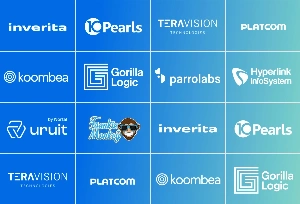So you’ve got a brilliant project idea and already found an outsourcing development team who is excited to start working on it.
Dedicated team, fixed price, time and materials… These words are buzzing around your head and you don’t know what engagement model you should choose.
It sounds familiar to everyone who has walked this path before.
We’ve had many clients who were in your shoes and today we’re going to help you find a matching model for your project.
What is an engagement model in software development?
In simple language, an engagement model is a strategy that is shaping the relationships between a client and the software development company and outlines how payments are handled.
We suggest the three most prevalent engagement models in project-based software development: fixed price, time and materials, and dedicated team. Knowing all of the nitty-gritty about the pricing models is vital for the successful project development process and for the desired outcome.
Let’s get started with the first one.
Fixed price engagement model
If you choose the fixed price pricing model, you and your supplier come to an agreement about the time, scope, and budget, with all of these aspects described in the contract.
Let’s figure out how these aspects intervene in the project-based software development process.
Cost
The reason why this model is an attractive option is that you know right from the beginning what exact amount of money you’ll pay for the software development services — implying, that there are no changes to be made in the project management and software development processes. In case of a different scenario — if the project requires a bigger budget (there’s a need to hire another software developer) — these expenses don’t change the final price. However, you must include a safety factor into the final price to protect everyone from the loss.
Time
Time is another factor you and your outsourcing vendor agree on. To align the time and budget is the responsibility of a vendor.
Scope
Your responsibility is to provide clear and well-structured requirements in order to be satisfied with the software development results. It would be helpful to stick to the time and costs you outlined before and your outsourcing vendor will see the complete picture of what software they need to build. Remember, any lack of transparency will work against you.
When a fixed price pricing model is a good choice
- short-term projects;
- MVP development;
- limited budget;
- strict timelines;
- test drives to know if the vendor is qualified enough;
- if you don’t want to be involved in the project-based software development process.
Time and materials engagement model
If you choose the time and materials, there’s no need for a pre-determined budget and you’ll pay exactly for the hours spent on project management and product development.
So, how does it exactly work?
Time
During iterations, you receive a certain part of the project done and improved until the product development phase is completed. You’ll also have an estimate to get an idea of how much time is required for project development.
Scope
Time and materials also differ from the fixed price in terms of client engagement. If you are involved in each interaction and provide feedback to the project management team after every sprint, you’ll be able to navigate the process and provide improvements for a desirable outcome. You can bring some modifications to the product development process in real-time.
Cost
When the budget is predictable it becomes flexible. With this approach, it might be difficult to figure out the exact price, however, if the project requires more investments you can stop the process and still have a functioning product. You pay less per unit of work than you would if you have chosen fixed price cooperation.
When time and materials pricing model is the right fit for your project
- big projects starting from scratch;
- unclear requirements;
- projects in a dynamic field;
- no rigid deadlines;
- inconsistent workflow.
Dedicated development team model
The last model we are going to discuss today is a dedicated development team. With this approach, you will be able to engage a team of experts that may include professionals besides developers — project managers, QA specialists, designers, etc. By analyzing your project scope you can decide how many development team members you want and what qualifications your project requires. The vendor takes initiative on issues relevant to recruitment, infrastructure, and administrative support.
Hiring a dedicated team is different from staff augmentation. Staff augmentation means temporary filling of the position for a particular project or task. Therefore, if you are looking for long-term cooperation — opt for a dedicated team rather than staff augmentation.
What does this mean regarding time, scope, and cost?
Scope
You can decide what workload and scope would work best for you. This model is the most flexible concerning requirements as it allows you to work and communicate with project management and software development teams as your own employees.
Time
The dedicated development team model allows complete flexibility, so you can decide with your outsourcing vendor how you are going to deal with deadlines. Generally, companies hire a development team for a certain amount of time, with the possibility to have a conversation about the longer partnership after that time expires.
Cost
In terms of price, this approach is less complicated than previous pricing models. You cover the costs of the team members’ monthly salaries as well as infrastructure and administrative expenses.
When is a dedicated development team model the right choice?
- large, complex, long-lasting strategic projects;
- when you understand the complexity of your project;
- projects with constant workflow;
- if you have a plan to expand your business in the near future.
Now what?
We hope that this overview will help you to make the right choice for your development process. Pro tip: discuss your project requirements with your outsourcing vendor in detail to figure out what model is best for your product development.
inVerita delivers high-quality project management and development services, so if you’re looking for an outsourcing or staff augmentation partner, contact us here.






